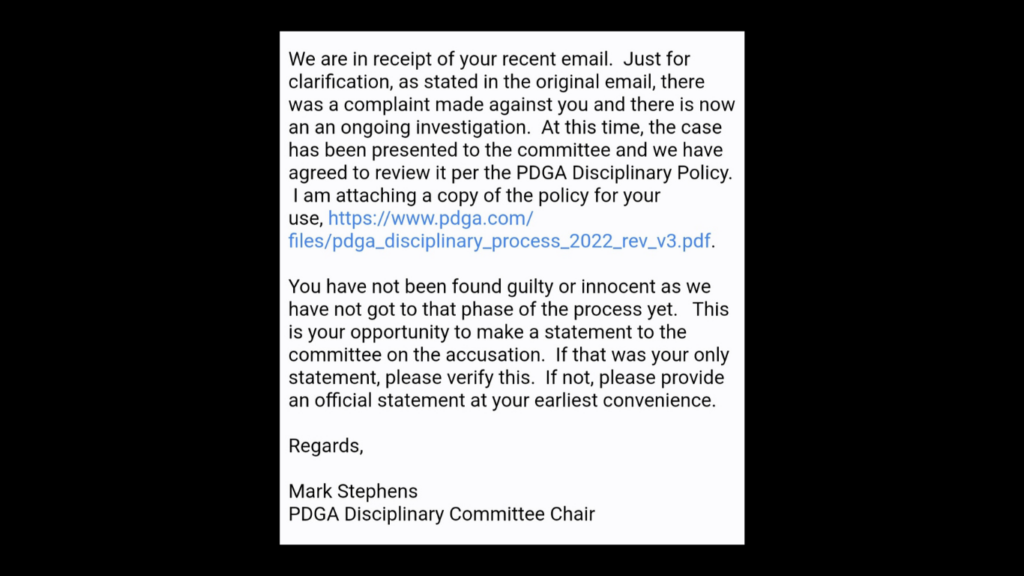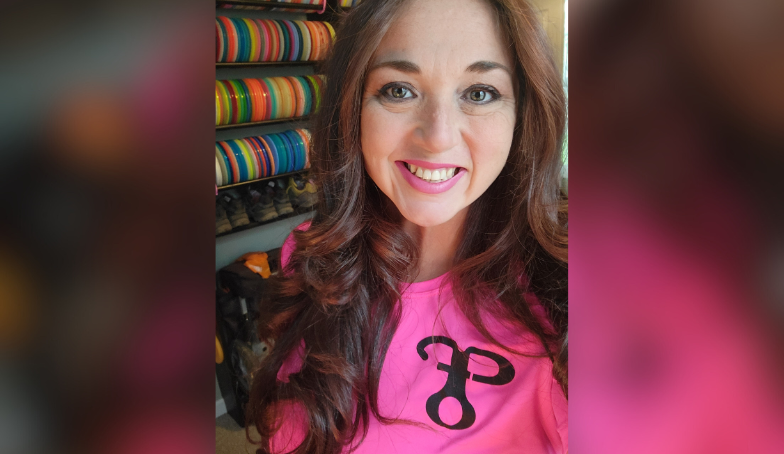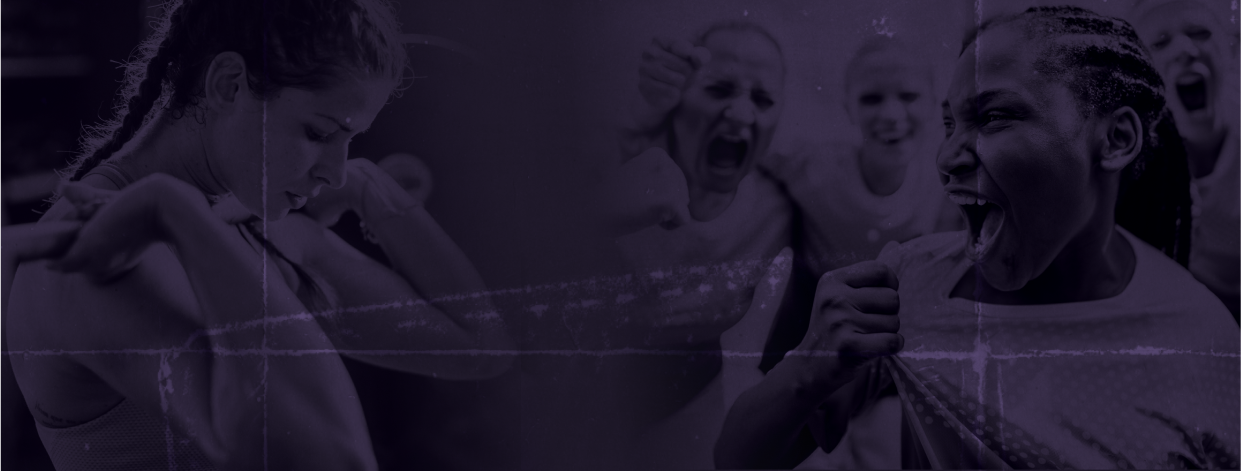A few years ago, it would have been impossible for Jennifer Castro to imagine her life without disc golf and the opportunity to compete in the sport.
“This sport saved me,” she told IW Features. “When I started disc golf, I was 230 pounds and got down to 150. It helped me with my mental health and PTSD from the Marines.”
Now, she’s boycotting the sport entirely.
After leaving the military, Castro went all-in on disc golf and began competing in amateur tournaments in 2020. She even volunteered her time outside of competition to mentor young girls, keep score at tournaments, and supply veterans with free bags of discs.
But two years ago, Castro uncovered that the Professional Disc Golf Association (PDGA) was allegedly lying to its membership about the criteria that disc golfers who identify as transgender had to meet in order to compete in female divisions.
It began with a simple email.
“I kind of did a little investigation of my own,” she said. “I emailed the PDGA Board and said that I was transgender and wanted to play as a female. I asked, ‘What do I have to do to make that happen? Do I have to submit any paperwork or anything?’”
She eventually received a response from Elaine King, the most successful female disc golf pro in the sport’s history and the current PDGA Board liaison to its medical committee.

“She told me I was under no obligation to submit any personal information before registering to compete as a female, and no challenges could be raised without evidence that I may not meet the criteria – and that looks and ability would not factor into evidence,” Castro said.
King’s guidance was in direct violation of the rules that were on the books at the time. Those rules required a trans-identified disc golfer to test at a certain hormonal level or provide a statement from a physician attesting to the golfer’s eligibility.
To make matters worse, when Castro reported evidence of a biological male disc golfer openly admitting to skipping the hormones that made him eligible to compete, the PDGA allegedly refused to investigate it.
“They give me medicine, I’m supposed to take it twice a day, every day. They’re called my pretty pills. I forget to take these…a lot,” pro disc golfer and trans-identifying male Chloe Alice says in the video. “Three days will go by and I remember, ‘Oh I haven’t taken my pills!’ If I stop taking these for an extended period of time, I will start reverting back, transitioning back to how my natural testosterone works.”
Apparently, that wasn’t enough evidence to justify a testosterone test, according to Castro. The only evidence that would warrant a test would have to come from Alice’s own medical records, which only he could provide.
This situation is one of many that has popped up in recent years as disc golf has become increasingly popular. In fact, the sport has grown so much that it is now a financially viable career for women who want to compete full-time. But that expansion has brought with it a number of biological males who have swept female championships across various amateur and professional tiers.
Kelly Jenkins, a biological male who was the first trans-identifying athlete to compete openly in the PDGA, won the Amateur Championship at Bowling Green in 2014. Jenkins initially registered without disclosing his biological sex.
In 2019, PDGA Board member and trans-identifying male Laura Nagtegaal won the Amateur Disc Golf World Championship just a few weeks after completing hormone replacement therapy and undergoing sex change surgeries.
Nova Politte, another biological male, won the PDGA Masters World FP50 Championship in both 2021 and 2022. Politte is 6‘4” and calls himself “the tallest female disc golfer in the world.”
Biological male Natalie Ryan, after playing the sport for only a few years, won multiple Elite Series tournaments, including the Disc Golf Live Open in 2022.
Shortly after Castro spoke with IWF Features, another biological male disc golfer, Brook Arnold, defeated longtime female disc golf pro Sarah Cunningham in a charity event. It was the eleventh time Arnold took home first place in 2024.
The PDGA tried to tighten up its gender eligibility requirements for athletes competing in the majors, passing a clause that states biological males who identify as women must have transitioned before puberty in order to compete against biological women. In response, Natalie Ryan sued the PDGA in the state of California. With the threat of more lawsuits looming, the PDGA reverted back to its looser gender eligibility rules.
As a result, Ryan is eligible to play at all 2024-2025 events. This year alone, Ryan has won more than $31,000 in prize money.
Professional female disc golfers feel cheated out of their livelihoods. In what is known as the Stockton Declaration, 33 female pro disc golfers petitioned the court to uphold the PDGA’s scrapped puberty clause. But over time, they stopped speaking out for fear of losing their sponsorships.
“It’s killing me that nobody has a voice anymore,” Castro said. “My career and financial freedom do not ride on disc golf like they do for these girls. A lot of these pros are my children’s age. So I have no problem continuing to fight, and I’m going to continue to do so.”
Castro said there are several members on PDGA’s Board of Directors who do not agree with what’s going on either. But with a trans-identified person on the Board and on the women’s committee of the PDGA, these members are worried the organization won’t do anything about it.
Castro wants to change that and fight for change from the inside, so she tried to run for a position on the PDGA Board of Directors.
When she announced her bid, Castro said she immediately received a groundswell of support. But Castro alleged the Board did three things to make sure she would never be elected.
First, Castro said they created a Nominating Committee to hand-select the people eligible to run – and they did not select Castro. When PDGA members started saying that they would write Castro in, the Board took that right away as well.
When asked for comment, the PDGA said the Nominating Committee was reinstated due to the “unwieldy slate of self-nominated candidates of varying experience and credentials in the 2020 Global Board of Directors election,” and that the decision was unrelated to Castro.
The PDGA also said the Nominating Committee’s decision not to select Castro as a candidate “was not based on the content of her proposed platform.”
According to Castro, the PDGA then commissioned a survey that they said would inform gender eligibility rules in the future.
“There were only two questions that had anything to do with the issue of transgender athletes in the sport,” Castro said. The rest felt like a political litmus test intended to create a chilling effect within the membership, she added.
Finally, Castro said the Board tried to have her permanently banned from the organization for allegedly breaking its code of conduct. Castro retained a lawyer to fight back, and the ban was dropped as a result.
“They did everything they could to stop me,” Castro says.

In response, the PDGA told IW Features, “To the extent that Ms. Castro’s claims accuse the PDGA of malfeasance or dishonesty, we flatly deny those claims.”
The PDGA did not address the allegations about its policy allowing trans-identifying males to compete in the women’s division.
After it became clear she would not be able to serve on the PDGA Board, Castro used the one vote she had left: her wallet. She ended her membership with the organization and requested a refund for the fees she already had paid in, citing the PDGA’s dishonest application of its own rules and regulations. They declined to give her money back, Castro said.
Castro says other women have since ended their PDGA memberships as well because they think what is happening is wrong, but the exact number is not clear. The PDGA is not transparent about the number of people who leave year over year, Castro said.
“Other members are like, ‘We’re not actually getting heard, we can’t actually vote for the people we want to, everything is being pre-picked, no rules are being brought before us to vote on, so what is the point of our membership?’” Castro said.
Castro wishes she still had disc golf as an outlet, and misses being able to help other veterans find comfort in disc golf as they work to overcome their PTSD and trauma. When the young girls she mentored try to quit in solidarity, she encourages them to continue enjoying the sport.
“I tell them to keep playing if it brings them joy,” Castro said. “I’m going to keep protesting and speaking out on their behalf until change comes, and it will.”










